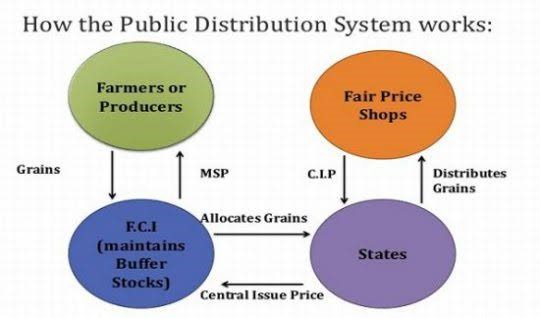The Struggle with PDS: The Right to Food in Crisis
Why in the News?
- Reports highlight: In 2023, alarming reports from Jharkhand and Odisha revealed that many households were removed from the Public Distribution System (PDS).
- State-wide issue: Bihar also faces PDS struggles, particularly among marginalized communities like the Musahars, exacerbated by the COVID-19 supply crisis.
Challenges with PDS Access and Quality
- Exclusion of households: Many Musahar families lack active ration cards or have incomplete details.
- Biometric issues: Mandatory verification leads to names being removed from PDS rolls.
- Food quality shortages: FPS dealers provide low-quality rice and insufficient quantities for BPL
Systemic Flaws and Exploitation
- Unnecessary documentation: States require caste and income certificates despite no legal basis.
- Middlemen exploitation: Musahar community faces exorbitant fees for ration card processing.
- Delays in issuance: Ration cards delayed for months, worsening food insecurity.
What is a Public Distribution System?
- Purpose: Established to address food scarcity by distributing foodgrains at affordable prices.
- Key tool: Manages India’s food economy, supplementing rather than fully meeting beneficiaries’ needs.
- Governance: Governed by the National Food Security Act (NFSA) of 2013, covering two-thirds of India’s population.
- Management: Managed by Central (FCI) and State/UT governments, handling procurement, storage, transportation, and distribution through Fair Price Shops.
Sources Referred:
PIB, The Hindu, Indian Express, Hindustan Times




